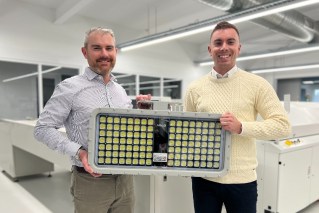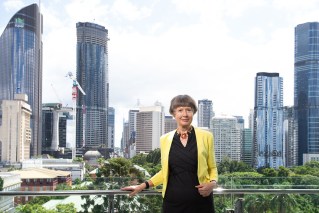
Giving your kids a financial head start
For parents wanting to put their children on the right track, Morgans Financial Limited has some strategies.

Queensland is heading towards a baby drought (Pic: Unsplash)
You might be hoping to save to help fund their education, or even build a lump sum they can put towards a home deposit.
But there’s a lot to consider before you sign that first investment cheque.
If your kids are young, you could be looking at investing for twenty years or more. Over that timeframe, the returns from investing in the share market have traditionally beaten all other types of investments.
If you buy shares in your own name, then you’ll be liable for tax on any dividends (although franking credits may reduce the impact).
When you sell, you’ll be liable for tax on any capital gains.
Often, couples will buy shares in the name of the lower income earner to minimise the impact of tax. But this comes with a warning – over time, the lower income earner could become the higher income earner, and you can’t just switch ownership of the shares.
An informal trust is one option. This means buying shares in trust for your kids, but you retain control over the investment.
Typically, you’d set up an account like this: William Smith <Melanie Smith A/C>. It’s best to seek taxation advice if you’re looking at establishing an informal trust.
The biggest downside to buying individual shares is the lack of diversification. To spread your risk, you need to invest in a number of companies across a number of market sectors.
This makes direct share investing impractical for parents starting with a small investment, or those who don’t want the responsibility of managing a portfolio.
If you’re not keen on picking your own shares, you can get a professional manager to do it.
You’ve got no shortage of options, and most managed share funds can be started with an investment of $1,000. In most cases, you can make regular additional payments, often from $100 per month.
Exchange Traded Funds (ETFs) and Listed Investment Companies (LICs) are also popular alternatives.
Both of them can give you an instant diversified portfolio with a single investment. ETFs and LICs can be traded on the ASX like ordinary shares, and you can get started with as little as $500.
Then there are the investments specifically marketed at people looking to invest for their kids. They include education funds and insurance bonds (sometimes called investment bonds). Like managed funds, they can be started with a modest deposit and you can make ongoing contributions.
Despite being marketed as tax-effective options, income and gains within the fund are taxed at 30%, with no concessions for capital gains. So they may not be as efficient as other opportunities in terms of tax, and often have higher fees.
Finally, you need to consider the impact of tax. Over time, your investments could grow substantially, particularly if you’ve made a large capital gain.
Thinking about the correct structure when you make the initial investment could avoid a hefty CGT bill down the track.
You’ll also need to consider whether your investment will impact any entitlement to Family Tax Benefit, and whether you want to retain control of the funds, or have them transfer to your kids automatically when they reach a certain age.
That’s a lot to think about, and getting professional advice before you make a start will help make sure your money is working hard for your kids.
Find out more on the Morgans website or talk to your local Morgans adviser.

















